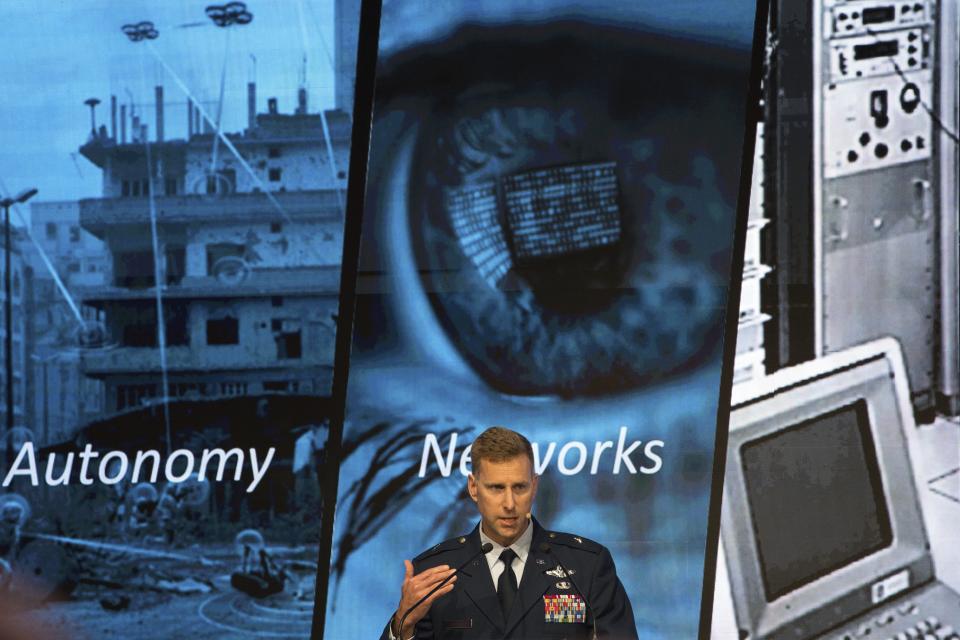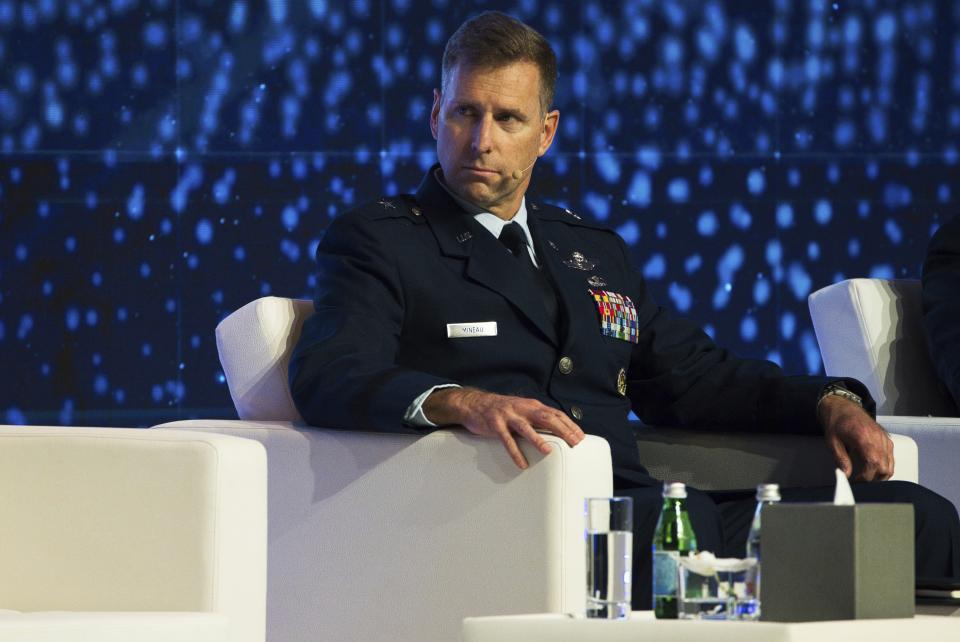DUBAI, United Arab Emirates (AP) — As Israel unleashes one of the most-intense aerial bombing campaigns the Middle East has ever seen, leaders from the world's top air forces met Sunday in the United Arab Emirates to talk about almost anything that wasn't an airstrike.
The discussions at the Dubai International Air Chiefs’ Conference, held ahead of the biennial Dubai Air Show this week, shows the delicate balancing act the federation of seven sheikhdoms faces. The UAE maintains diplomatic ties with Israel despite widespread and growing anger in the Arab world over the civilian casualties from Israel's offensive in the Gaza Strip against Hamas.
The Air Chiefs' Conference demonstrates how those ties continue, particularly as Rafael Advanced Defense Systems Ltd., an Israeli defense manufacturer, was a sponsor of the summit. And while the Dubai Air Show focuses primarily on commercial aircraft in a region crucial to East-West travel, there's a military component of the event as well.
Listed among the show's exhibitors are both Rafael and Israel Aerospace Industries, which makes radars for its anti-missile systems and combat drones for the Israeli military.
“IAI stands shoulder to shoulder with the (Israeli military) to fully support all efforts, with fully operational systems,” the company said in an online message. “We have a national duty and a profound responsibility to support the ... Israeli defense community, while continuing to deliver top-quality service and supplies to our partners worldwide.”
The Israel-Hamas war began Oct. 7, when militants stormed into Israel, killing some 1,200 people and taking over 200 others back to the Gaza Strip as hostages. In the time since, the intense Israeli airstrikes on the Gaza Strip, followed up by a ground campaign with street-to-street combat still going on, have killed more than 11,000 Palestinians, two-thirds of them women and minors, according to the Hamas-overseen Health Ministry there.
For the arms industry, the Gulf Arab states long have been major clients. The nations, led by Saudi Arabia and the United Arab Emirates, have spent billions of dollars on both sophisticated fighter jets and missile defense systems as tensions with Iran have risen and ebbed over the decades.
In the past 10 years alone, Saudi Arabia has spent more than $28 billion on weapons imports, the second-highest in the world behind only India, according to the Stockholm International Peace Research Institute. Qatar has spent more than $11 billion while the UAE has spent over $10 billion as the sixth- and seventh-largest importers in the world respectively, SIPRI data shows.


